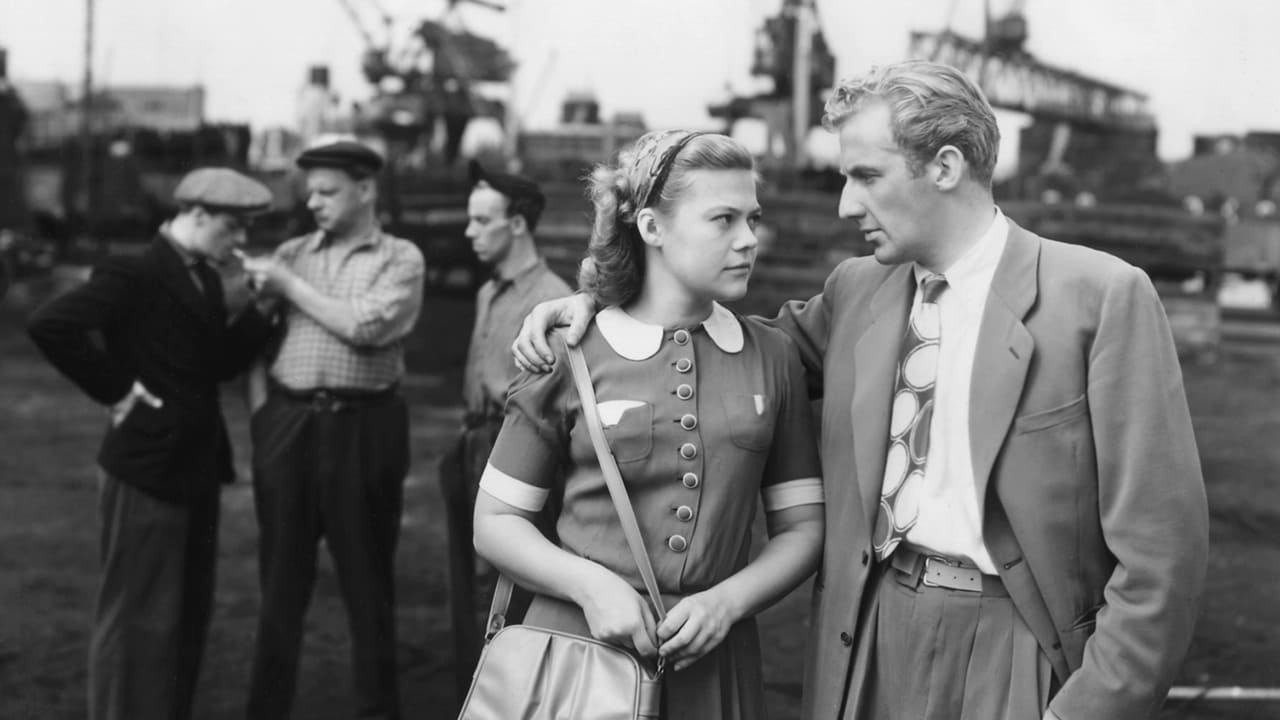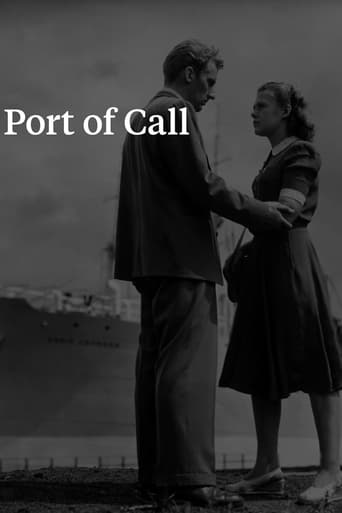

Set in Gothenberg, 'Hamnstad' was Bergman's fifth feature film, his first with cameraman Gunnar Fischer, and concludes his early "neo-realist" phase - there's still plenty of documentary footage of blue collar working life and its all rather more sordid than his later films, including a harrowing section involving an abortion - but much more sparing use is made of Erland von Koch's than hitherto in anticipation of the more laid-back approach he was soon to adopt.
... View MoreOne can see the beginnings of some pretty wonderful cinematography in this early work by Ingmar Bergman. It is a slice of life story about two down-and-outers who have been dealt a bad hand. The young woman has a sparkle, despite growing from an abusive family situation. She is dominated by her mother. She has spent time in a reformatory because her life is intolerable and she turns to a man who kindly takes her in. Because of her age, the mother can do what she wants. The sailor is a man who has just arrived at this port of call. His first act upon coming ashore is to rescue the young woman, who has decided top end it all by jumping in the harbor. Their paths cross again and it develops into a tenuous relationship. His first act is to get her into bed, but over time he realizes that she is all he has. Bergman does a nice job of making these people real. She has all kinds of demons and he has trouble accepting her morose being. She has a right to feel the way she does and he really is an unfeeling cad. If one is willing, he can see the framing of scenes, the positions of actors, and some pretty interesting symbols. It is a claustrophobic film. Outdoor scenes are scenes of freedom, even the suicide attempt; and indoor the forces of the outside close in. See this as a foundation piece.
... View More"Hamnstad" is one of the rare Swedish films focusing on family life.Its uniqueness is due to the fact that it has an eclectic mix of serious themes. These themes include bitter, harsh realities like abortion,broken home, correctional house etc. Bergman has deftly portrayed the dreary lives of its two lonely protagonists : Gosta and Berit. For this purpose, he has chosen a small provincial port town where nothing much happens. This film is a good record of how gloomy the life in Sweden (Europe) during 1940s was. Bergman has also shown us how all emotional problems are solved if lovers decide to remain true to each other. This is precisely the case of Gosta and Berit.Gosta has always led a hard life. He is a moody soul too. As a sailor, he has been out on sea for many years. For this reason he is unable to believe that some girl can enter his life in order to love him.There are doubts in Berit's mind too. As a loner, she tries hard to leave her past behind. As a young lass, Berit witnessed numerous fights involving her father and mother. This is one of the reasons why there is enormous distance between Berit and her mother. It is during one of these turbulent emotional phases that Berit meets Gosta. Even though Gosta is a tough nut to crack, his love for Berit is real. On one occasion, Gosta fights some young rascals to prove his intensity of emotional attachment for Berit. Gosta even proves that he is the ideal man for Berit as he solemnly ignores Berit's revelation that in the past, she was sent to a correction house. He urges Berit to make an earnest effort to leave her past behind. Berit has no hesitation at all in following this humble piece of advice. It is precisely in this manner that both Berit and Gosta embark on a successful journey to lead a happy, joyful life as companions for life. All of Bergman's film have a message to offer to audiences. Through "Hamnstad", he wishes to tell us all that being alone is a terrible feeling.
... View MoreAn early film from Ingmar Bergman, it is just as interesting on a visual scope as his films usually are, with the docklands filmed well and good use of panning and dolly work throughout. In terms of story and acting though, this is rather ordinary stuff, despite some interesting ideas and philosophies about freedom. It seems the easy way to out to just classify this film as interesting but not up to the standard that Bergman would later set, however I cannot think of much else to say here. It certainly is not as thought-provoking and intense as some of his later films, and for those not interested in Bergman or clever camera movement, I could easily imagine this piece coming across as boring.
... View More